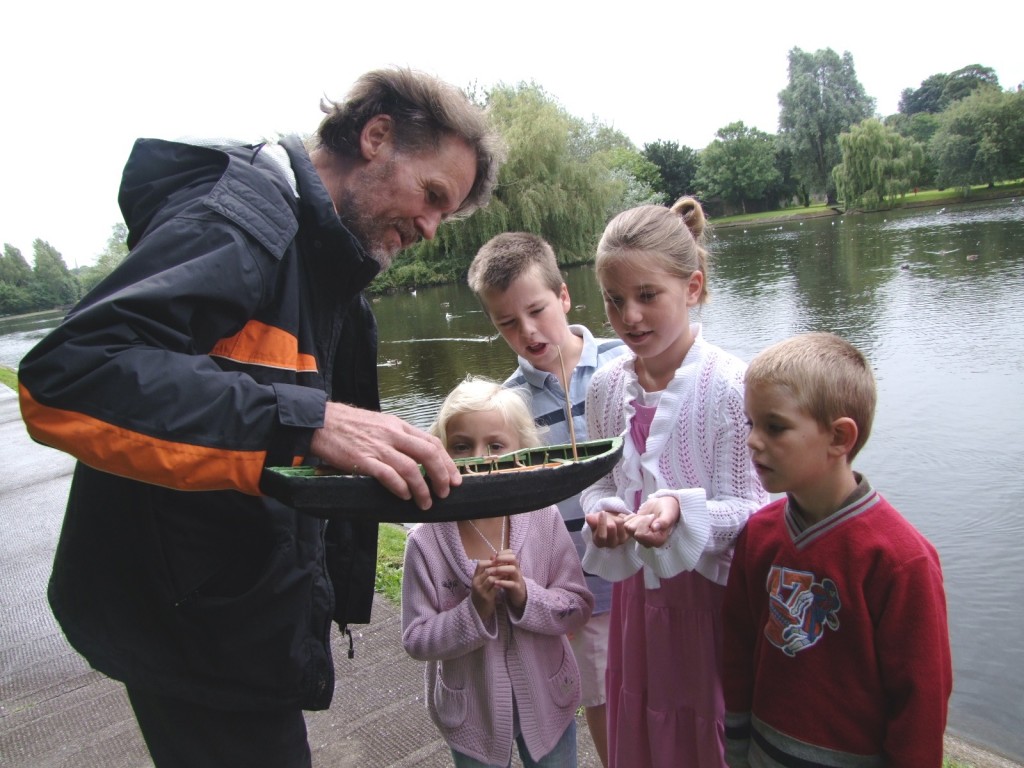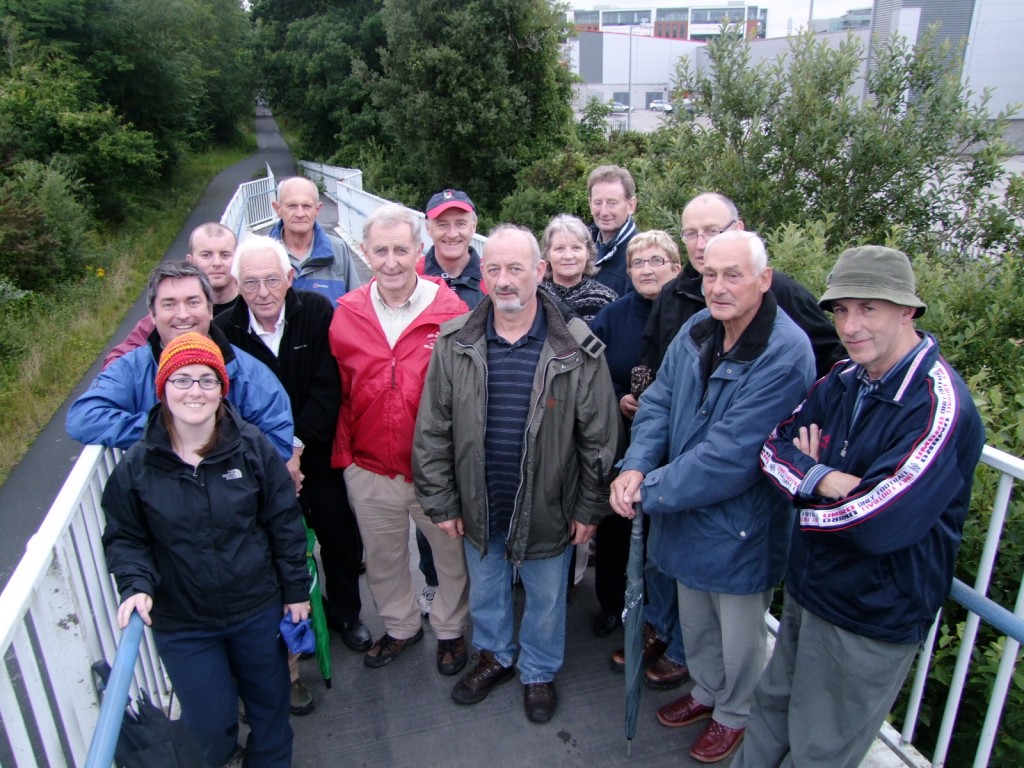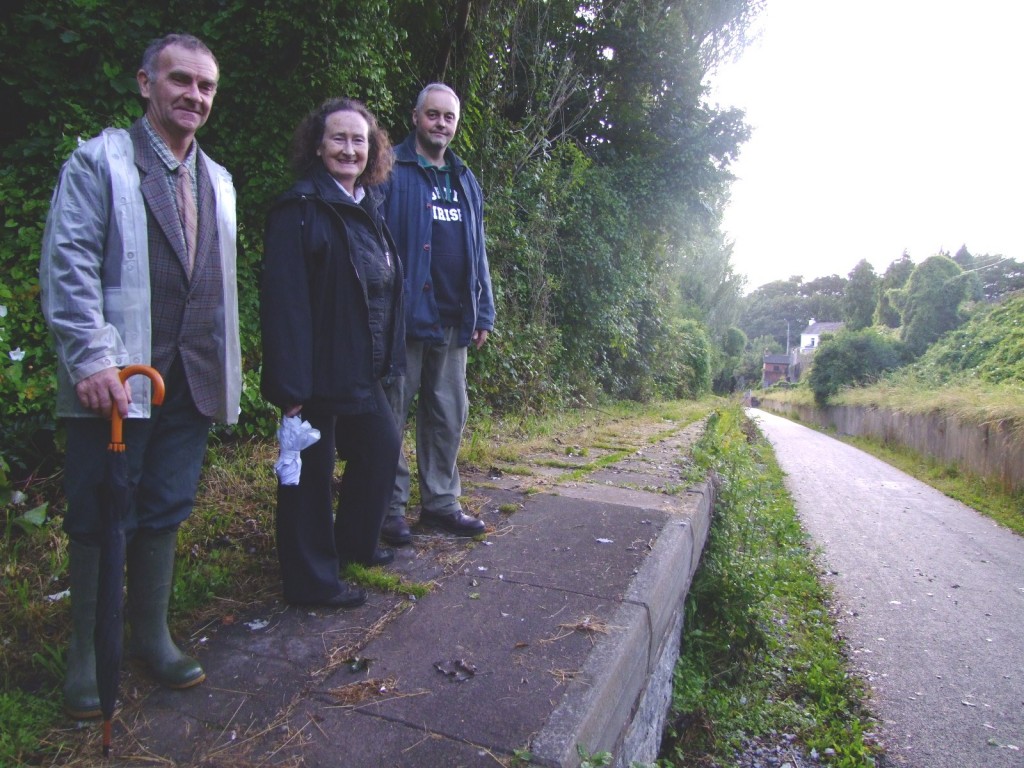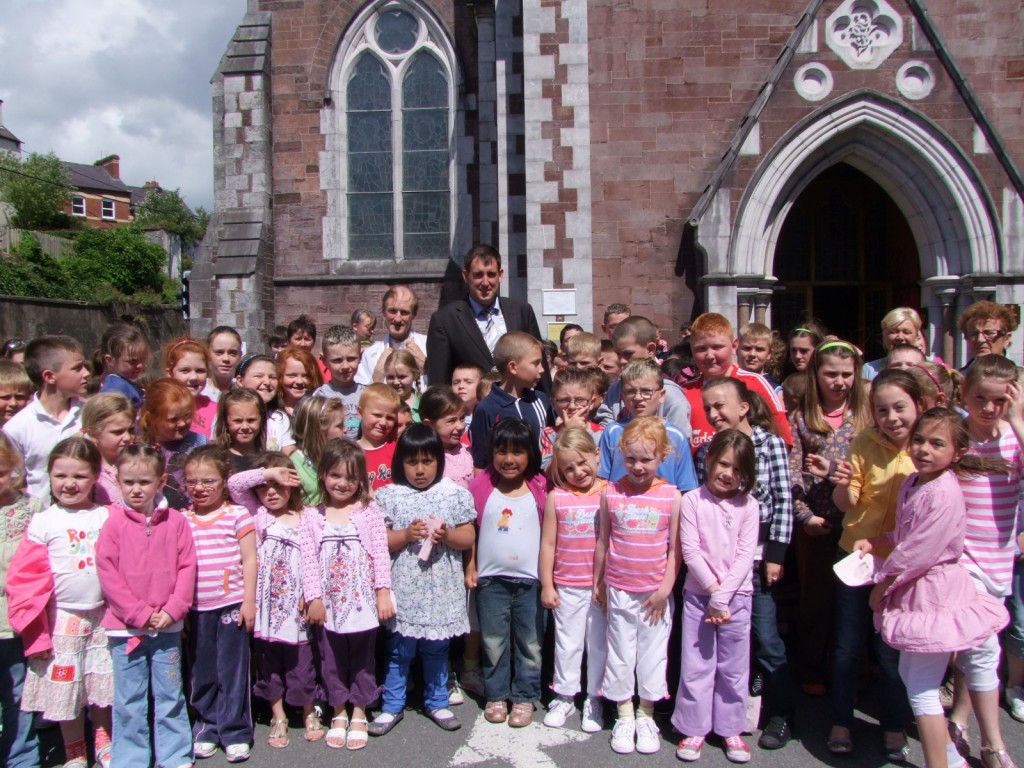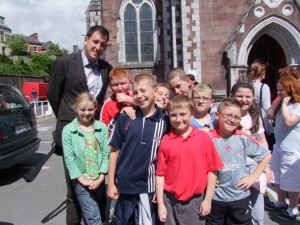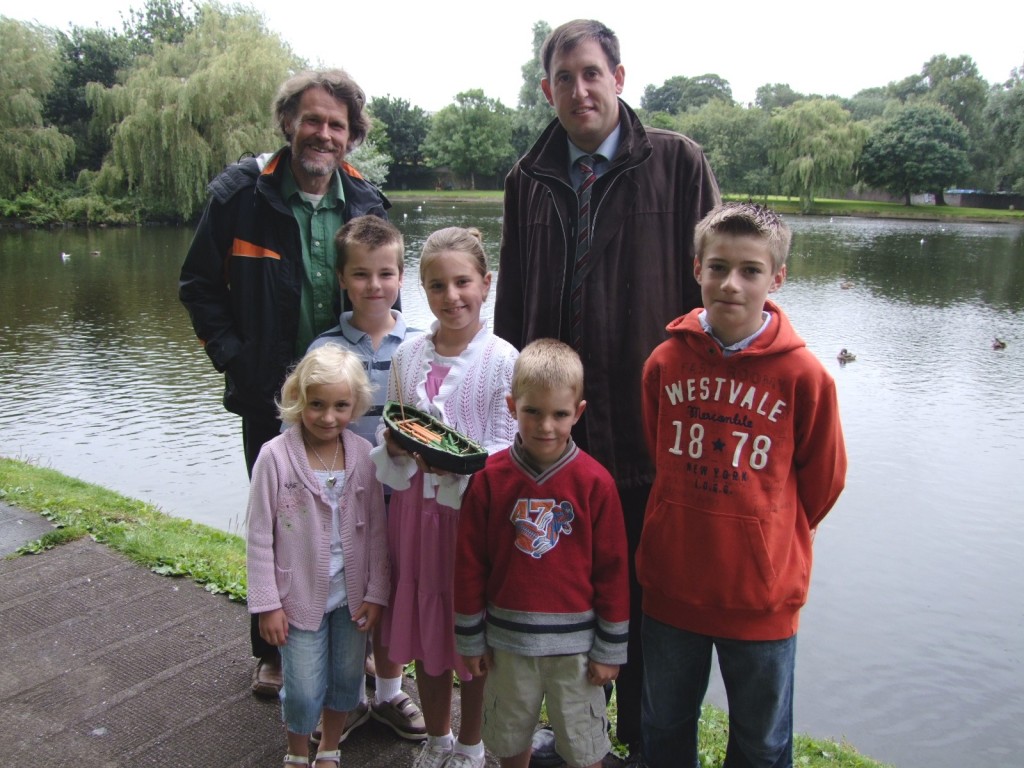
Caption:
At the launch of McCarthy’s Make a Model Boat project at the Atlantic Pond;
L-r, Padraig Dineen, Meitheal Mara, Malcolm Muggeridge, Katie Stoker-Phelan, Isabelle Muggeridge, Nigel Muggeridge, Shane Stoker-Phelan & Cllr. Kieran McCarthy (picture: Audrey Furney-Kelly)
Cllr. Kieran McCarthy, following on from his walking tours of the Old Cork Blackrock Rail line, continues with his summer community orientated programme of events under the themes of heritage and education. Cllr. McCarthy invites all Cork young people to participate in McCarthy’s ‘Make a model boat project’. All interested must make a model boat at home from recycled materials and bring it along for judging to the Atlantic Pond on Saturday afternoon, 8 August at 2p.m. The event is being run in association with Meitheal Mara. There are two categories, one for primary and one for secondary students. There are prizes for best models and the event is free to enter.
Cllr. McCarthy, who is heading up the event, noted “this project is a response to constituent’s voices that there is nothing to do for young people in Cork during the summer months. I am encouraging creation, innovation and imagination amongst our young people, which are important traits for all of us to develop in these difficult financial times”. In addition, Cllr. McCarthy emphasised that places like the Atlantic Pond are an important part of Cork’s natural heritage and should be managed as appropriate. Cllr. McCarthy noted: “I will also be liasing with the Park’s Department of Cork City Council so that the recent environmental events that occur on the Lough will not re-appear at the Atlantic Pond”. See www.kieranmccarthy.ie for more community events.
